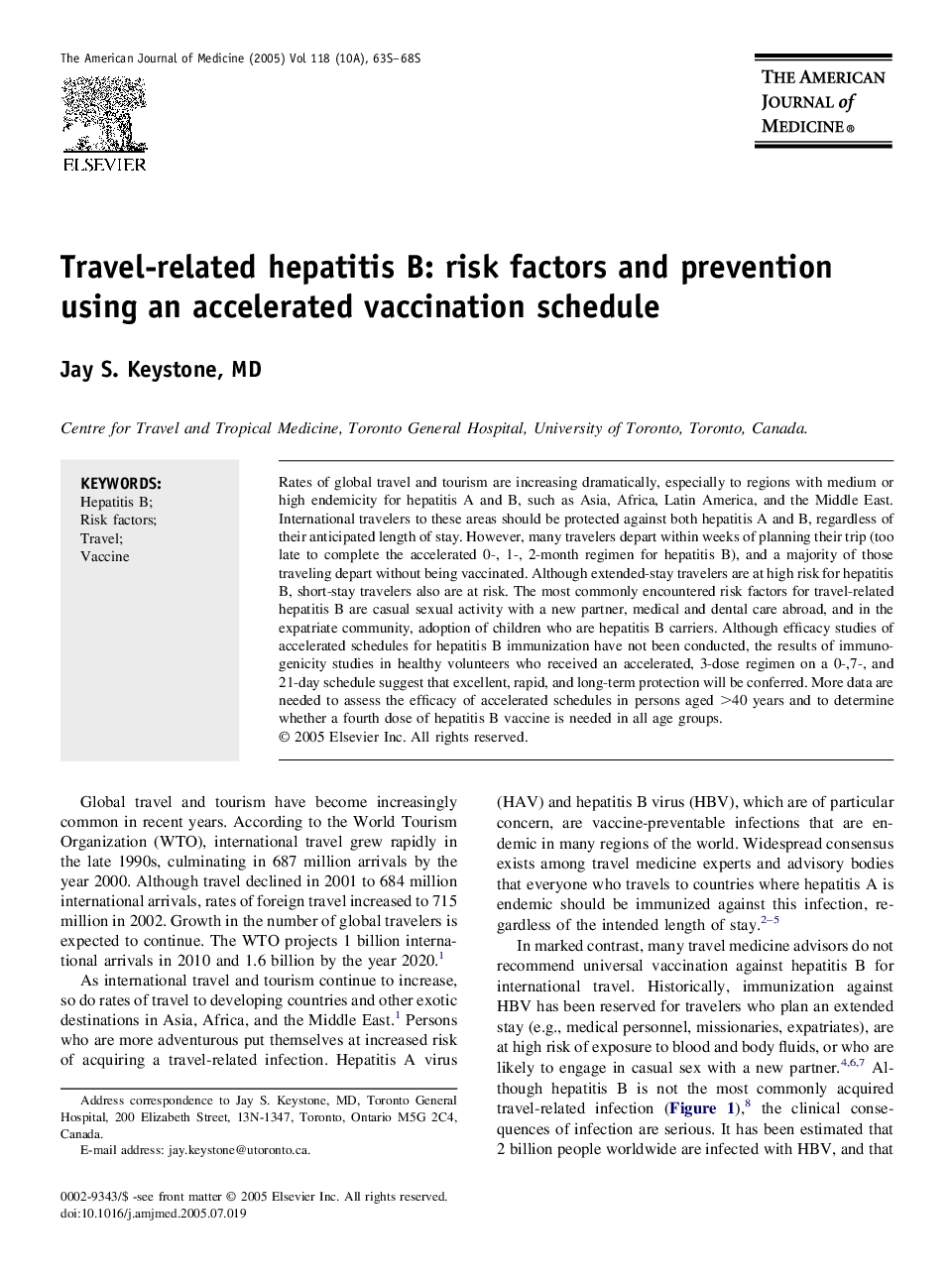| Article ID | Journal | Published Year | Pages | File Type |
|---|---|---|---|---|
| 9929329 | The American Journal of Medicine | 2005 | 6 Pages |
Abstract
Rates of global travel and tourism are increasing dramatically, especially to regions with medium or high endemicity for hepatitis A and B, such as Asia, Africa, Latin America, and the Middle East. International travelers to these areas should be protected against both hepatitis A and B, regardless of their anticipated length of stay. However, many travelers depart within weeks of planning their trip (too late to complete the accelerated 0-, 1-, 2-month regimen for hepatitis B), and a majority of those traveling depart without being vaccinated. Although extended-stay travelers are at high risk for hepatitis B, short-stay travelers also are at risk. The most commonly encountered risk factors for travel-related hepatitis B are casual sexual activity with a new partner, medical and dental care abroad, and in the expatriate community, adoption of children who are hepatitis B carriers. Although efficacy studies of accelerated schedules for hepatitis B immunization have not been conducted, the results of immunogenicity studies in healthy volunteers who received an accelerated, 3-dose regimen on a 0-,7-, and 21-day schedule suggest that excellent, rapid, and long-term protection will be conferred. More data are needed to assess the efficacy of accelerated schedules in persons aged >40 years and to determine whether a fourth dose of hepatitis B vaccine is needed in all age groups.
Keywords
Related Topics
Health Sciences
Medicine and Dentistry
Medicine and Dentistry (General)
Authors
Jay S. MD,
